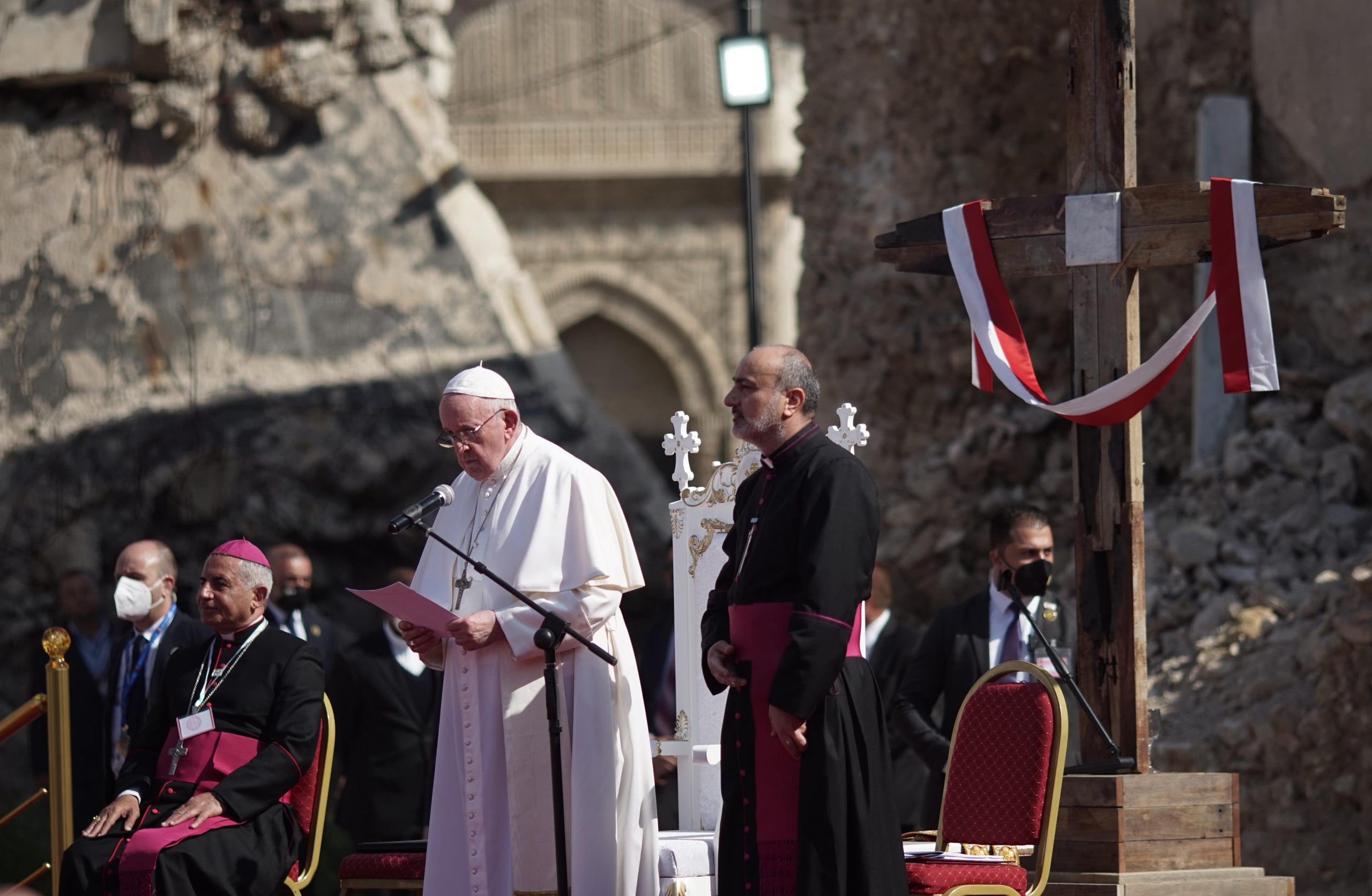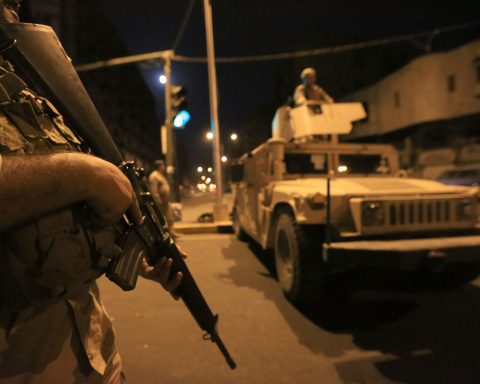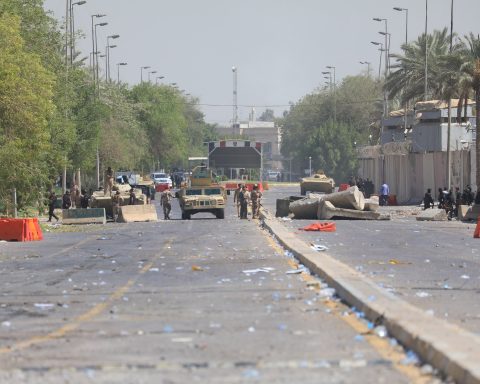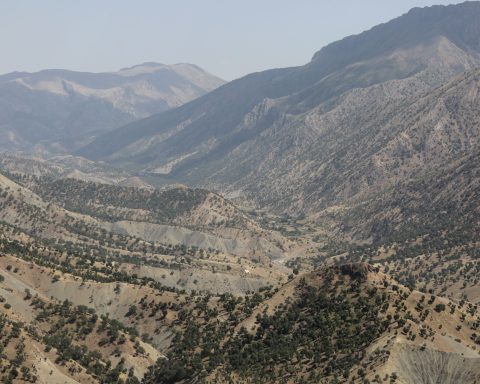In an attempt to fulfill peace in Iraq and elsewhere in the Middle East, the 84-year-old leader of the Catholic Church Pope Francis made a rare visit to the war-torn country, aiming to put an end to the Christian exodus in the Middle East. Pope Francis, who was travelling under tight security in armored vehicles, led a prayer service for the victims of the war in Mosul, an ancient cosmopolitan crossroad whose center was reduced to rubble by fierce fighting to oust the Islamic State (IS) fighters in the region.
Francis said that the exodus of Christians from Iraq and the broader Middle East “does incalculable harm not just to the individuals and communities concerned, but also to the society they leave behind”.
Reports indicate that many Christians in Iraq, due to wars, conflicts, and poor living conditions, were forced to emigrate. Only 400,000 Christians remain in Iraq today, out of a population of 40 million, after they were numbered at 1.5 million in 2003, prior to the US invasion of Iraq. While in Syria, as many as 80% of Syrian Christians have left their country since the start of the civil war in 2011, according to a report produced by Christian charities Open Doors International, Served, and Middle East Concern in 2018.
The Pope’s program in Iraq included visits to the cities of Baghdad, Najaf, Ur, Mosul, Qaraqosh, and Erbil. On the second day of his historic visit, the Pope met with the Supreme Shiite cleric, Ali al-Sistani in Najaf, who declared his interest in the “security and peace” of Iraqi Christians, and their right of coexistence with their fellow Iraqi citizens.
He also toured the ruins of the ancient city of Ur, traditionally believed to be the birthplace of Prophet Abraham, who is considered the father of the three main monotheistic religions of the Middle East. Pope Francis said that God, who had promised a 100-year-old Abraham that he would have children, told the prophet to look up to the sky and count the stars. “In those stars, he saw the promise of his descendants — he saw us,” said the Pope, surrounded by Muslim and Christian leaders and representatives of ancient religious minorities.
Following the gathering, the Pope led Muslims, Jews, leaders of Iraq’s Christian churches, and members of Iraqi religious minorities, such as the Yazidis and Sabaeans, in prayer, pleading with God for peace, reconciliation, and the power to rebuild the conflict-torn nation.
At the conclusion of the mass the Pope held in Erbil on the last day of his visit to Iraq, Pope Francis met Abdullah Kurdi, the father of the Syrian Kurdish child Aylan Kurdi, who died by drowning, while his family tried to flee to Europe. His image later became a symbol of the refugee crisis in 2015.
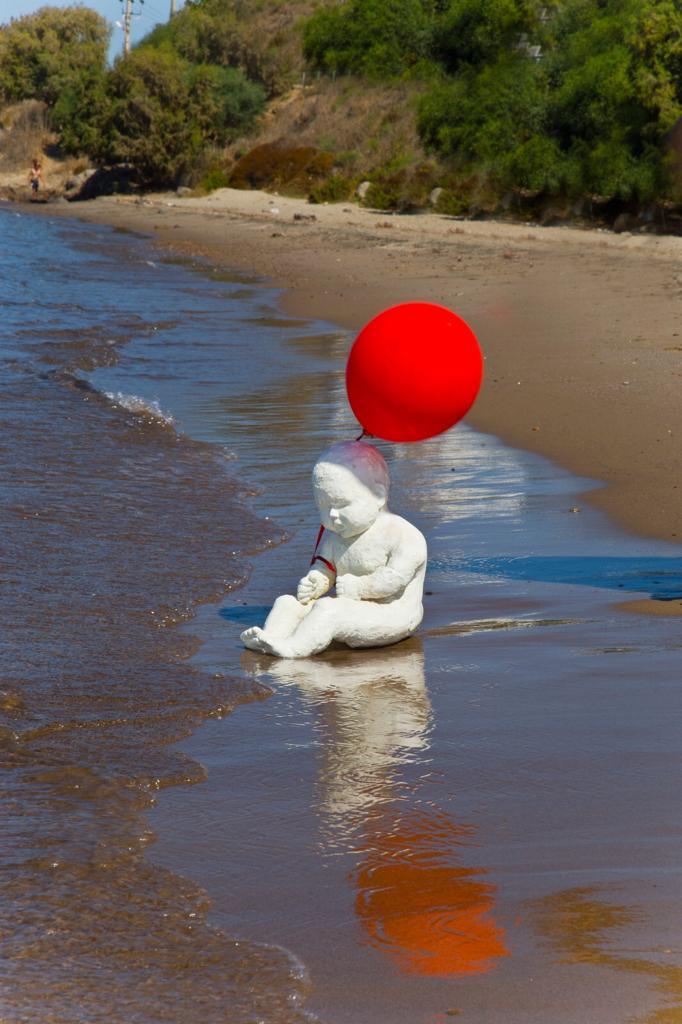
Finally, Pope Francis met with the Iraqi President Barham Salih, who said in his speech: “Welcome to Ur, our first city, which introduced writing and was the blessed birthplace of the Prophet Abraham (peace be upon him), the father of the prophets, the city that the hearts of believers yearn for”.
The importance of this tour in the Iraqi cities and towns concerned stems from the Pope’s position as the head of the Catholic Church, which is followed by 1.3 billion people. Pope Francis was on the Time magazine’s list of the most influential people on earth in 2019, due to his efforts to fulfill peace in different parts of the world.

